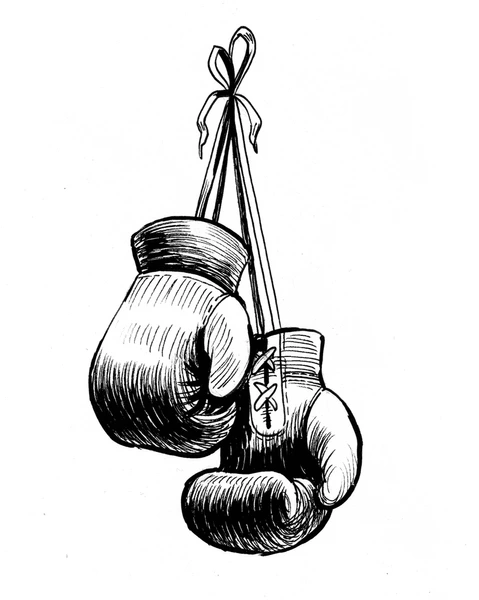
BOXING REFORM Think its needed?
Is boxing reform needed now?
According to historian Mike Silver, it is in desperate need of an overhaul, as described in his new book “When In Doubt, Stop the Bout.” This blog examines the sport and checks the box on what is truly needed in the near future.
Boxing has undergone significant changes over the years, and it appears that the traditional rules and regulations have not kept pace with the evolving sport, which is in dire need of reform — and reform for the better.
ESPN: Congress pitches bill to update federal boxing regulations
Yes, boxing reform is needed, and this has been a long-standing debate within the sport. Here’s a breakdown of why reform is necessary and what areas need the most attention:
Why Boxing Reform Is Needed
1. Lack of a Central Governing Body
Unlike other major sports, boxing lacks a unified governing authority. Instead, multiple sanctioning bodies (WBC, WBA, IBF, WBO, etc.) lead to:
Confusing rankings
Multiple “world champions” in the same weight class
Title fights are being driven more by profit than merit
2. Corruption & Controversial Judging
Many fights are marred by suspicious scorecards and allegations of biased judging.
Judges often face no accountability, and there’s rarely transparency in how they’re selected.
3. Fighter Safety
Boxing is inherently dangerous, but oversight varies widely by region.
Lack of standard medical protocols or post-fight monitoring can lead to long-term injuries, brain trauma (CTE), or even death.
4. Promoter Power & Inactivity
Promoters often protect their fighters and avoid risky matchups, which delays big fights fans want.
Fighters sometimes go years without meaningful bouts, which can damage the sport’s credibility and momentum.
5. Ranking System Abuse
Sanctioning bodies frequently manipulate rankings to suit business interests.
“Mandatory challengers” are often undeserving, and rising contenders are sidestepped.
What Reforms Could Help?
Unified Governing Body or Oversight Commission
A global boxing commission (like FIFA in soccer or UFC’s centralized model) could enforce consistent rules, rankings, and safety measures.
Transparent and Accountable Judging
Use of open scoring or a review system for controversial decisions.
Judges should face audits and performance reviews.
Standardized Health and Safety Protocols
Mandatory brain scans, longer medical suspensions, and pre-fight/post-fight testing.
Support for retired fighters dealing with long-term health issues.
Clean Up the Title System
Limit each weight class to one true champion, or at least unify titles regularly.
Penalize ducking and reward consistent activity.
Promoter & Fighter Contracts Reform
Incentivize fights between top contenders.
Set deadlines for title defenses and create consequences for inactivity.
Counterpoint: Why Reform Is Hard
Too many vested interests: Promoters, sanctioning bodies, networks—all have different priorities.
There is no incentive for those in power to change: the current system benefits certain fighters and promoters.
Lack of public pressure: Boxing fans are passionate but fragmented, and major reforms rarely have widespread backing.
Bottom Line
Boxing boasts incredible talent and a rich history, but its fragmented structure, corruption, and safety issues are hindering its growth. Reform is not only necessary—it may be the only way to save the sport’s credibility in the long term.
What is happening now:
Here are several reform proposals for boxing that have been put forward by experts, governing bodies, and lawmakers. Some are already in process; others are still being debated.
Existing / Proposed Reforms & Who’s Behind Them
1. Judging, Refereeing & Olympic Integrity
The International Boxing Association (IBA, formerly AIBA) has pledged reforms to address accusations of manipulated judging, especially in Olympic‐style boxing. ESPN.com+2AP News+2
Among their reforms:
Setting up an independent integrity unit for referees and judges.
pointing independent governance experts to review and restructure decision‑making. iba.sport+1
Carrying out full audits of finances and the integrity of operations to improve transparency. iba.sport+1
2. Governance & Sanctioning Bodies
IBA’s governance reform group, led by Prof. Ulrich Haas, has produced recommendations on improving structure, accountability, and oversight.
The creation of “World Boxing,” a breakaway organization, by some national federations (e.g., USA Boxing), was in response to dissatisfaction with IBA’s governance. Their aim: a more trustworthy international federation.
3. Legal / Legislative Reform in the U.S.
The Muhammad Ali Boxing Reform Act is a U.S. law (enacted in 2000) that aims to protect boxers by requiring promoter disclosures, managing conflicts of interest, and implementing other measures. World Boxing Council
A proposed update: the Muhammad Ali American Boxing Revival Act. Key features/Debates around it:
It would allow for “Unified Boxing Organizations” (UBOs) that can combine roles (promoter, rankings, and sanctioning) under certain regulations. Critics worry these UBOs might reduce transparency or concentrate power. World Boxing Council
It proposes minimum medical protections, injury insurance, minimum purses, facilities support, etc. World Boxing Council
It seeks to introduce exceptions or modifications to the Ali Act’s current restrictions where UBOs are concerned. World Boxing Council+1
4. Health, Safety, and Anti‐Doping
WBC’s (World Boxing Council) programs, including:
A Weight Management Program to monitor weight cuts and pre‑fight weigh‑ins to reduce risk. World Boxing Council
A Clean Boxing Program in collaboration with VADA (Voluntary Anti‑Doping Association), to increase drug testing and doping awareness. World Boxing Council
Funds or safety nets for fighters (e.g., boxer’s fund) to help with financial and after‑fight well-being. World Boxing Council
Olympic Recognition & Pressure
Because boxing risked being removed from the Olympics (or being excluded again) due to concerns about governance, integrity, and corruption, the IOC demanded reforms from IBA. AP News+2ESPN.com+2
One response was changing the branding (from AIBA to IBA) and increasing the involvement of member federations in decision-making. AP News+1
Major Points of Debate & Concern
Unified Boxing Organizations (UBOs): While proponents argue that they offer clarity and efficiency (single rankings, fewer belts, a more predictable path for boxers), opponents worry about monopolistic control, reduced oversight, and the loss of checks and balances (promoter, sanctioning body, and title awards all in one entity).
Protections vs. Business Incentives: Updating laws like the Ali Act might help ensure medical safety, minimum pay, and other protections, but there’s tension between preserving fighter safety and allowing promoters or investors to operate freely. World Boxing Council
Transparency & Accountability: Many criticize current opaque practices (judges, promoters, sanctioning bodies). Reforms emphasize audits, independent units, and clearer rules. But implementation is uneven.
Identity & Authority of Governing Bodies: Disputes over who has legitimacy—between the IBA, World Boxing, and national federations—affect the ability to enforce reforms.
What Expert / Commission Proposals Could Look Like If Fully Adopted
Putting together the ideas above, a strong reform plan could include:
A single or very limited number of sanctioning bodies per weight class, with mandatory unification processes.
Transparent, publicly audited ranking systems for boxers.
Independent oversight of judging, with review boards and strong punishment for bias/fraud.
Laws ensuring minimum medical standards (pre‑ and post‑fight), lawsuits protection, safer weight cutting, and long‑term health coverage.
Legal enforcement of promoter disclosures of revenues, contracts, and limits on conflicts of interest.
Uniform safety rules across jurisdictions (states, countries), including licensing, referees, and medical staff requirements.
Better representation for boxers in decision‑making (e.g., through unions or athlete commissions).
These thoughts were inspired by the book “When in Doubt, Stop the Bout.”
**Mike Silver is an internationally respected historian and author. His first book, “The Arc of Boxing: The Rise and Decline of the Sweet Science” (McFarland Publishers, 2008), won two awards for boxing journalism from the American Association for the Improvement of Boxing and the Boston Veteran Boxers’ Association. His second book, “Stars in the Ring: Jewish Champions in the Golden Age of Boxing-A Photographic History” (Lyons Press, 2016) was called “an achievement unlikely to be equalled” by Publishers’ Weekly.
Mike has been a historical consultant and on-air commentator for 19 televised boxing documentaries; curator of the “Sting Like A Maccabee: The Golden Age of the American Jewish-Boxer” exhibit at The National Museum of American Jewish History in Philadelphia (2004); and a co-curator of the San Francisco Jewish Film Festival’s centerpiece program, “Jews, Boxing & Hollywood” (2007). Mike has written extensively about the sport for The Ring Magazine, The New York Times, Boxing Monthly, and various boxing websites. He is a former Inspector with the New York State Athletic Commission and a member of the International Boxing Research Organization.



